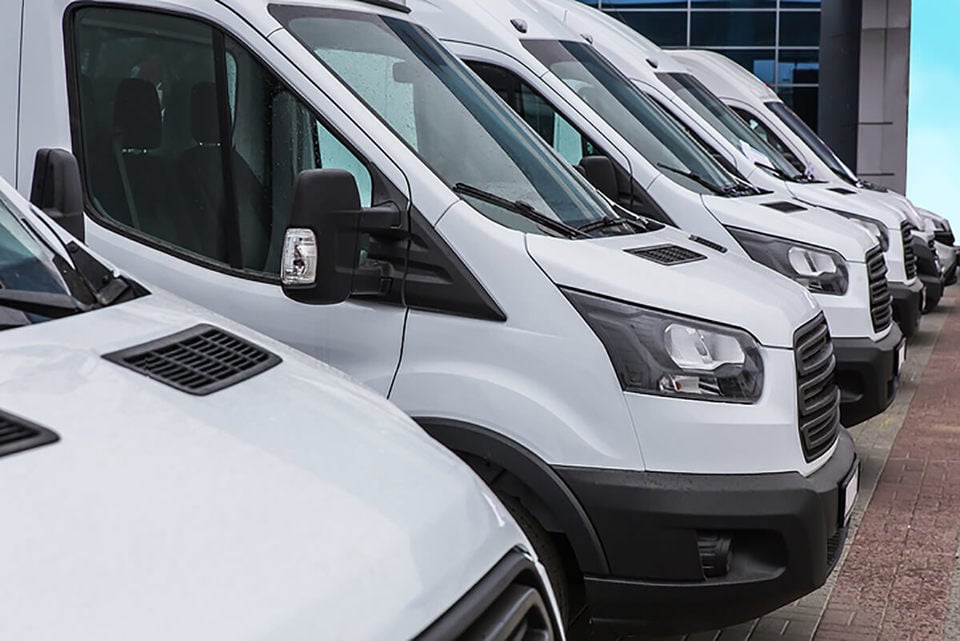Rules relating to the operation of electric vans remain unchanged despite the Government promising to make it easier for fleets to operate them.
The Government announced in October, 2023, that the additional five-hour training requirement for drivers would be removed for electric vans weighing up to 4.25 tonnes.
It also promised to make changes to towing allowances and broaden the flexibility to cover all vehicle types, beyond goods vans, recognising that further measures were needed to support their uptake.
However, six months after making the announcement, the Department for Transport (DfT) told Fleet News that legislation required to change the rules had not yet been introduced.
A DfT spokesperson warned fleets that “existing requirements continue to apply until legislation comes into effect”, adding that “the legislation to implement the changes will be laid when Parliamentary time allows”.
It gave no indication when that would be and, with a General Election due by the end of the year, there are concerns the changes may not make the statute book anytime soon.
The news will come as a blow to fleets, with the Association of Fleet Professionals (AFP) previously reporting that operators were cancelling orders for 4.25-tonne electric vans, because of confusion over regulations surrounding their use.
The AFP, amongst others, had welcomed the rules changes when they were announced last year, but hearing that legislation had still not been introduced, chair Paul Hollick said the delay was “frustrating”.
He told Fleet News that the regulations around 4.25t electric vans are probably the “biggest fleet challenge” facing AFP members right now.
“We do need action on this as soon as possible,” he added. “It is definitely slowing our industry’s ability to decarbonise commercial vehicle fleets and is really frustrating.”
In an effort to highlight the issues around the use of electric vans, the Zero Emission Van Plan was launched earlier this year.
The Van Plan, which has been created by the British Vehicle Rental and Leasing Association (BVRLA), the AFP, Logistics UK, Recharge UK and the EV Café, and is supported by Fleet News, calls on the Government to provide greater fiscal support, improve charging infrastructure and remove regulatory barriers to help accelerate uptake of fully electric light commercial vehicles.
A recent roundtable involving Van Plan representatives, fleets and transport minister Anthony Browne, was the latest in a series of meetings with decision-makers across Government to discuss the issues.
Following the meeting with the minister, BVRLA chief executive Gerry Keaney said that for vans to get anywhere near the targets set out by the ZEV mandate, “decision-makers need to sit up and take notice now”.
Government consultation on zero emission vans
Typically, electric vans have an increased mass compared to their petrol and diesel equivalents. This is due to the additional weight of their powertrain, including the battery.
Flexibility to allow category B licence holders to drive these heavier zero emission vans was originally introduced in 2018, to avoid constraining payload for operators using cleaner, alternatively-fuelled options, predominantly battery electric vehicles (BEVs).
It means that standard (category B) licence holders can drive alternatively-fuelled goods vans with a maximum authorised mass (MAM) of 4.25 tonnes, above the standard 3.5t entitlement.
Despite this flexibility, the zero-emission van market continued to face challenges and the Government launched a consultation in 2022 to understand what further measures were needed to support their uptake.
Publishing the consultation outcome in October, 2023, it said it would introduce legislation around the current additional training requirement; types of vehicles eligible for the flexibility; towing allowances; and types of fuels eligible for the flexibility.
Highlighting that fleets should be able to adopt a zero-emission van with “as much ease as a petrol or diesel equivalent”, it pledged to remove the five-hour training requirement.
It also said it would legislate to allow the vans to operate under the licence flexibility to tow a vehicle and trailer combination up to 7,000kg MAM.
This would be under the same conditions as equivalent internal combustion engine (ICE) vehicles and would reflect recent changes to B+E licence entitlements.
However, until legislation is introduced, fleets should continue to adhere to the existing rules around the operation of zero-emission vans, including the five-hour training requirement.
The lack of change will do nothing to help improve the confidence of van operators – from large fleets to small businesses and the self-employed – to make the switch to electric power.
The latest registration figures for new light commercial vehicles (LCVs), from the Society of Motor Manufacturers and Traders (SMMT), revealed that more fleets went green in March than in any other new numberplate month to date, with new battery electric vans up 14.7% to 2,906 units.
The record uptake, however, represented just 5.5% of the LCV market and was only slightly up from 5.3% in March last year, which is somewhat shy of the 10% market share mandated by Government in new rules introduced this year.





















Login to comment
Comments
No comments have been made yet.